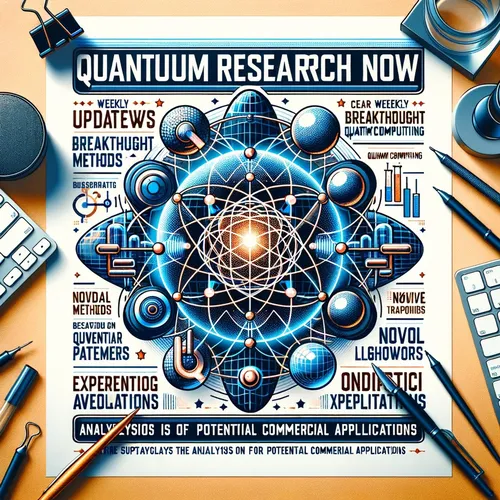IonQ's Quantum Leap: 1,000 Patents and 2 Million Qubits by 2028
- Author
- Quiet. Please
- Published
- Fri 22 Aug 2025
- Episode Link
- https://www.spreaker.com/episode/ionq-s-quantum-leap-1-000-patents-and-2-million-qubits-by-2028--67479150
This is your Quantum Research Now podcast.
Today, the air in the lab felt charged—no pun intended. A major headline just flashed across the wire: IonQ, one of the powerhouses in quantum information science, has broken new ground with their latest patents, pushing their tally to over 1,000 intellectual property assets. IonQ’s announcement is not just a flex for their legal team. It signals a sharp escalation in the quantum race—a race with real-world consequences for how we’ll compute, secure information, and invent new technologies in this decade.
If you’re picturing server rooms bathed in blue light and walls humming with exotic equipment, you’re not far off. I’m Leo, short for Learning Enhanced Operator, and here at Quantum Research Now, my world spins in superposition between the dramatic and the deeply technical. What IonQ revealed this week is dramatic: they’ve fortified their leadership in trapped-ion quantum computing and networking, and they’re aiming for commercial quantum systems with up to two million qubits within five years. For context, that’s like going from building a toy-model railroad in your basement to controlling every train schedule on Earth—simultaneously, in real time.
But what does this leap in patents and performance actually mean for you and me, sitting at the intersection of bits and atoms? Let’s dig in.
Imagine a qubit—a quantum bit—balanced on the edge of possibility, like a coin that is spinning through space. Unlike a classic coin that must land heads or tails, our quantum coin stays spinning, showing both at once until measured. This is superposition, the odd rule that lets quantum computers crunch through a multitude of solutions as if they are playing a thousand games of chess at once. IonQ’s patents point to new ways to reduce “noise”—the pesky static that knocks the coin off its edge too soon—and optimize decision pathways so these spinning coins do something useful, fast.
If traditional computing is like reading a map and taking one turn at a time, quantum computing is like seeing all possible routes in parallel and picking the best one in a heartbeat. IonQ’s trajectory gives us a peek at the GPS of tomorrow’s world. That means medicine found faster with molecular simulations, global supply chains tuned down to the minute, and encrypted messages as unbreakable as the laws of physics allow.
I’m reminded of other events this month: from Strangeworks’ acquisition of Quantagonia, which fuses quantum optimization with AI, to new quantum materials being developed for more robust qubits. It’s as if every corner of science is holding its breath, waiting to see how these developments ripple out.
As we approach a reality where two million qubits could compute what would take today’s supercomputers centuries, the quantum era is no longer on the horizon—it’s at the lab bench next door.
Thank you for diving into today’s quantum headline with me. If you have questions or dream of topics you want explored on air, email me at [email protected]. Don’t forget to subscribe to Quantum Research Now—this has been a Quiet Please Production. For more, check out quiet please dot AI.
For more http://www.quietplease.ai
Get the best deals https://amzn.to/3ODvOta
